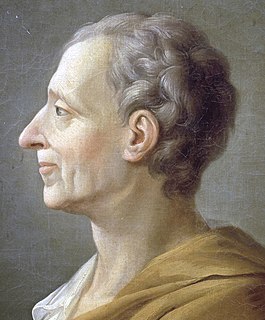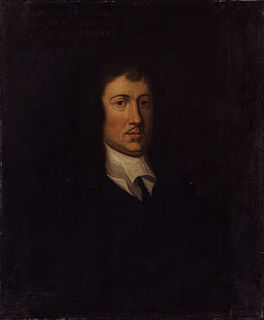
Niccolò di Bernardo dei Machiavelli, occasionally rendered in English as Nicholas Machiavel, was an Italian diplomat, author, philosopher and historian who lived during the Renaissance. He is best known for his political treatise The Prince, written in about 1513 but not published until 1532. He has often been called the father of modern political philosophy and political science.

A republic is a form of government in which "supreme power is held by the people and their elected representatives". In republics, the country is considered a "public matter", not the private concern or property of the rulers. The primary positions of power within a republic are attained through democracy or a mix of democracy with oligarchy or autocracy rather than being unalterably occupied by any given family lineage or group. With modern republicanism, it has become the opposing form of government to a monarchy and therefore a modern republic has no monarch as head of state.
Republicanism is a political ideology centered on citizenship in a state organized as a republic. Historically, it emphasises the idea of self-rule and ranges from the rule of a representative minority or oligarchy to popular sovereignty. It has had different definitions and interpretations which vary significantly based on historical context and methodological approach.

Charles Louis de Secondat, Baron de La Brède et de Montesquieu, generally referred to as simply Montesquieu, was a French judge, man of letters, historian, and political philosopher.

Lucie-Simplice-Camille-Benoît Desmoulins was a French journalist and politician who played an important role in the French Revolution. Desmoulins was tried and executed alongside Georges Danton when the Committee of Public Safety reacted against Dantonist opposition. He was a schoolmate of Maximilien Robespierre and a close friend and political ally of Danton, who were both influential figures in the French Revolution.

The Society of the Friends of the Rights of Man and of the Citizen, mainly known as Cordeliers Club, was a populist political club during the French Revolution from 1790 to 1794, when the Reign of Terror ended and the Thermidorian Reaction began.

James Harrington was an English political theorist of classical republicanism. He is best known for his controversial publication The Commonwealth of Oceana (1656). This work was an exposition of an ideal constitution, a utopia, designed to facilitate the development of the English republic established after the regicide, the execution of Charles I in 1649.

The American Enlightenment was a period of intellectual ferment in the thirteen American colonies in the 18th to 19th century, which led to the American Revolution, and the creation of the United States of America. The American Enlightenment was influenced by the 17th-century European Enlightenment and its own native American philosophy. According to James MacGregor Burns, the spirit of the American Enlightenment was to give Enlightenment ideals a practical, useful form in the life of the nation and its people.
Mixed government is a form of government that combines elements of democracy, aristocracy and monarchy, ostensibly making impossible their respective degenerations which are conceived as anarchy, oligarchy and tyranny. The idea was popularized during classical antiquity in order to describe the stability, the innovation and the success of the republic as a form of government developed under the Roman constitution.
Classical republicanism, also known as civic republicanism or civic humanism, is a form of republicanism developed in the Renaissance inspired by the governmental forms and writings of classical antiquity, especially such classical writers as Aristotle, Polybius, and Cicero. Classical republicanism is built around concepts such as civil society, civic virtue and mixed government.

The values, ideals and concept of Republicanism have been discussed and celebrated throughout the history of the United States. As the United States has no formal hereditary ruling class, Republicanism in this context does not refer to a political movement to abolish such a class, as it does in countries such as the UK, Australia, and Netherlands. Instead, it refers to the core values that citizenry in a republic have, or ought to have.
Douglass Greybill Adair was an American historian who specialized in intellectual history. He is best known for his work in researching the authorship of disputed numbers of The Federalist Papers, and his influential studies in the history and influence of republicanism in the United States during the late eighteenth and early nineteenth centuries—the era of the Enlightenment. His most famous essay, "Fame and the Founding Fathers," introduced the pursuit of fame as a new motivation for understanding the actions for the Framers.
John Greville Agard Pocock is a historian of political thought from New Zealand. He is especially known for his studies of republicanism in the early modern period, his work on the history of English common law, his treatment of Edward Gibbon and other Enlightenment historians, and, in historical method, for his contributions to the history of political discourse.
A scholar of the history of British political discourse, J. G. A. Pocock, the Harry C. Black Chair of History Emeritus at Johns Hopkins University, has enjoyed over 60 years of publication. Now in his tenth decade, he recently concluded Barbarism and Religion, a six-volume study of Edward Gibbon, author of The History of the Decline and Fall of the Roman Empire. The first two volumes of B&R were awarded the American Philosophical Society's Jacques Barzun Prize in Cultural History for the year 1999.

The Machiavellian Moment is a work of intellectual history by J. G. A. Pocock. It posits a connection between republican thought in early 16th century Florence, English-Civil War Britain, and the American Revolution.
Arihiro Hoeber Fukuda was a Japanese historian who was an associate professor at the University of Tokyo Faculty of Law and specialised in the history of Western political thought, particularly the republican the ideas of James Harrington, Thomas Hobbes, David Hume, and Niccolò Machiavelli.

Le Vieux Cordelier was a journal published in France between 5 December 1793 and 3 February 1794. Its radical criticism of ultra-revolutionary fervor and repression in France during the Reign of Terror contributed significantly to the downfall and execution of the Dantonists, among whom its author, the journalist Camille Desmoulins, numbered. It comprised seven numbers, of which six appeared; the seventh remained unpublished for some forty years.
In Britain in the period from the 1680s to the 1740s, and especially under the Walpole ministry from 1730 to 1743, the Country Party was a coalition of Tories and disaffected Whigs. It was a movement rather than an organised party and had no formal structure or leaders. It claimed to be a nonpartisan force fighting for the nation's interest—the whole "country"—against the self-interested actions of the Court Party, that is the politicians in power in London. Country men believed the Court Party was corrupting Britain by using patronage to buy support and was threatening English and Scottish liberties and the proper balance of authority by shifting power from Parliament to the prime minister. It sought to constrain the court by opposing standing armies, calling for annual elections to Parliament, and wanted to fix power in the hands of the landed gentry rather than the royal officials, urban merchants or bankers. It opposed any practices it saw as corruption.

A revolutionary republic is a form of government whose main tenets are popular sovereignty, rule of law, and representative democracy. It is based in part on the ideas of Whig and Enlightenment thinkers, and was favored by revolutionaries during the Age of Revolution. A revolutionary republic tends to arise from the formation of a provisional government after the overthrow of an existing state and political regime. It often takes the form of a revolutionary state, which represents the will of its constituents.

Doux commerce is a concept originating from the Age of Enlightenment stating that commerce tends to civilize people, making them less likely to resort to violent or irrational behaviors. This theory has also been referred to as commercial republicanism.











